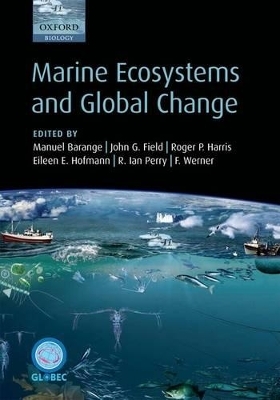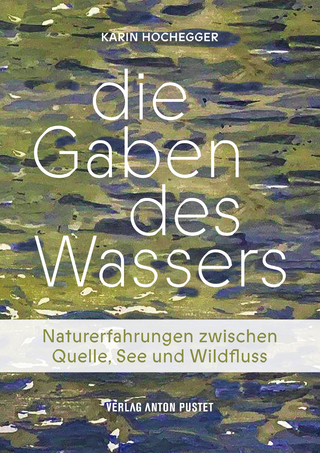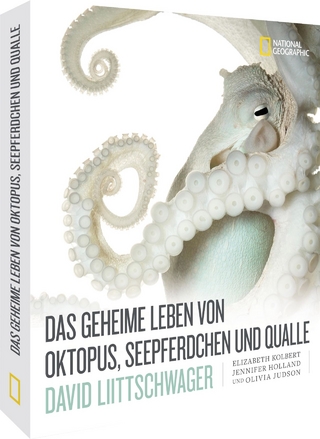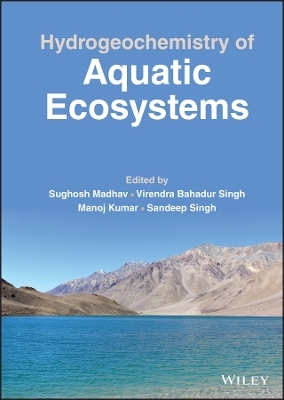
Marine Ecosystems and Global Change
Oxford University Press (Verlag)
978-0-19-955802-5 (ISBN)
Global environmental change (including climate change, biodiversity loss, changes in hydrological and biogeochemical cycles, and intensive exploitation of natural resources) is having significant impacts on the world's oceans. This book advances knowledge of the structure and functioning of marine ecosystems, and their past, present, and future responses to physical and anthropogenic forcing. It illustrates how climate and humans impact marine ecosystems, providing a comprehensive review of the physical and ecological processes that structure marine ecosystems as well as the observation, experimentation, and modelling approaches required for their study. Recognizing the interactive roles played by humans in using marine resources and in responding to global changes in marine systems, the book includes chapters on the human dimensions of marine ecosystem changes and on effective management approaches in this era of rapid change. A final section reviews the state of the art in predicting the responses of marine ecosystems to future global change scenarios with the intention of informing both future research agendas and marine management policy.
Marine Ecosystems and Global Change provides a detailed synthesis of the work conducted under the auspices of the Global Ocean Ecosystems Dynamics (GLOBEC) programme. This research spans two decades, and represents the largest, multi-disciplinary, international effort focused on understanding the impacts of external forcing on the structure and dynamics of global marine ecosystems.
Manuel Barange is Director of the International Project Office of GLOBEC, based at the Plymouth Marine Laboratory, UK. His scientific interests include Climate and Anthropogenic impacts on Marine Ecosystems, Assessment and management of marine fisheries and Marine Physical/Biological interactions. He is an advisor to the UK Natural Environmental Research Council and the UK Department of Environment, Fisheries and Rural Affairs on sustainable marine bioresources and a member of the European Commission Framework 7 Advisory board for "Environment (including climate change)". Dr Barange has over 60 peer-reviewed publications and has recently edited a book on Climate Change and the Economics of the World's Fisheries through Elgar publishers. Professor John Field is Director of the Marine Research (MA-RE) Institute at the University of Cape Town. He specializes in analysis of marine ecosystems, the effects of climate change on fisheries, and developing an ecosystem approach to managing fisheries. He is past President of the Scientific Committee on Oceanic Research (SCOR) and presently chairs the Scientific Steering Committee of the Global Ocean Observing System (GOOS). He is listed as an ISI-Highly Cited Scientist for his work on analysing marine distribution patterns, and for co-authoring the article that coined the term "microbial loop", which won the 2006 John Martin ASLO Award for a paradigm shift in aquatic science. Dr. Roger Harris is a Senior Scientist at the Plymouth Marine Laboratory, UK. His main research interests are: the control of biological production by physical processes, the role of water column biology in global oceanic carbon flux and the ecology and physiology of calanoid copepods. He has considerable experience in international and interdisciplinary project management. He is past Chairman of the IGBP/SCOR/IOC GLOBEC Steering Committee and continues to serve on the GLOBEC SSC and leads the Focus 2 Process Studies Working Group. Involved in a number of editorial roles, currently principally as Strategic Editor of the Journal of Plankton Research and editing a Special Issue of ICES Journal of Marine Science for the 4th International Zooplankton Symposium. Published over 100 peer-reviewed scientific papers. Eileen E. Hofmann is a Professor in the Department of Ocean, Earth and Atmospheric Sciences and a member of the Center for Coastal Physical Oceanography, both at Old Dominion University, Norfolk, Virginia. Her research interests are in the areas of understanding physical-biological interactions in marine ecosystems, climate control of diseases of marine shellfish populations, descriptive physical oceanography, and mathematical modeling of marine ecosystems. Dr. Hofmann has worked in a variety of marine environments, most recently the continental shelf region off the western Antarctic Peninsula. She is a member of the US and International GLOBEC Science Steering Committees and is Chair of the Southern Ocean GLOBEC programme. She presently serves as co-Editor of the Journal of Marine Systems. Dr. Hofmann has published over 100 scientific publications to date. Dr. Ian Perry is a fisheries oceanographer working for Fisheries & Oceans Canada, in Nanaimo, BC, Canada. His research expertise includes the structure, function, and processes of fish production in marine ecosystems; the human dimensions of marine ecosystem changes; methods for providing scientific advice for new and developing fisheries; and scientific leadership of international and inter-governmental programs on marine ecosystems and global change. He is a past Editor for North America and Oceania for the professional journal Fisheries Oceanography, has been a visiting lecturer at universities in Canada, Chile and Portugal, is the concluding Chair of the international Global Ocean Ecosystem Dynamics (GLOBEC) program, and a past "Chief Scientist" for the inter-governmental North Pacific Marine Science Organisation (PICES). He has written over 125 scientific publications to date. Cisco Werner is the past Chair of the GLOBEC Scientific Steering Committee and is the Director of the Institute of Marine and Coastal Sciences at Rutgers University, USA. He specialises in the development of numerical models of ocean circulation and in studies of coupled physical oceanographic and biological processes. He has studied components of marine ecosystems of the North Atlantic, North Pacific and the European Shelf focusing on the dynamics of lower trophic levels, and the dispersal, growth and survival of early life stages of fish and invertebrates. He presently serves as co-Editor of Progress in Oceanography.
SECTION 1 - THE CHANGING OCEAN ECOSYSTEMS ; SECTION 2 - ADVANCES IN UNDERSTANDING THE STRUCTURE AND DYNAMICS OF MARINE ECOSYSTEMS ; SECTION 3 - THE HUMAN DIMENSIONS OF CHANGES IN MARINE ECOSYSTEMS ; SECTION 4 - A WAY FORWARD
| Erscheint lt. Verlag | 11.2.2010 |
|---|---|
| Reihe/Serie | Oxford Biology |
| Zusatzinfo | 130 illustrations plus a 16 page colour plate section |
| Verlagsort | Oxford |
| Sprache | englisch |
| Maße | 196 x 253 mm |
| Gewicht | 1119 g |
| Themenwelt | Naturwissenschaften ► Biologie ► Limnologie / Meeresbiologie |
| Naturwissenschaften ► Biologie ► Ökologie / Naturschutz | |
| Naturwissenschaften ► Geowissenschaften ► Hydrologie / Ozeanografie | |
| ISBN-10 | 0-19-955802-7 / 0199558027 |
| ISBN-13 | 978-0-19-955802-5 / 9780199558025 |
| Zustand | Neuware |
| Haben Sie eine Frage zum Produkt? |
aus dem Bereich


